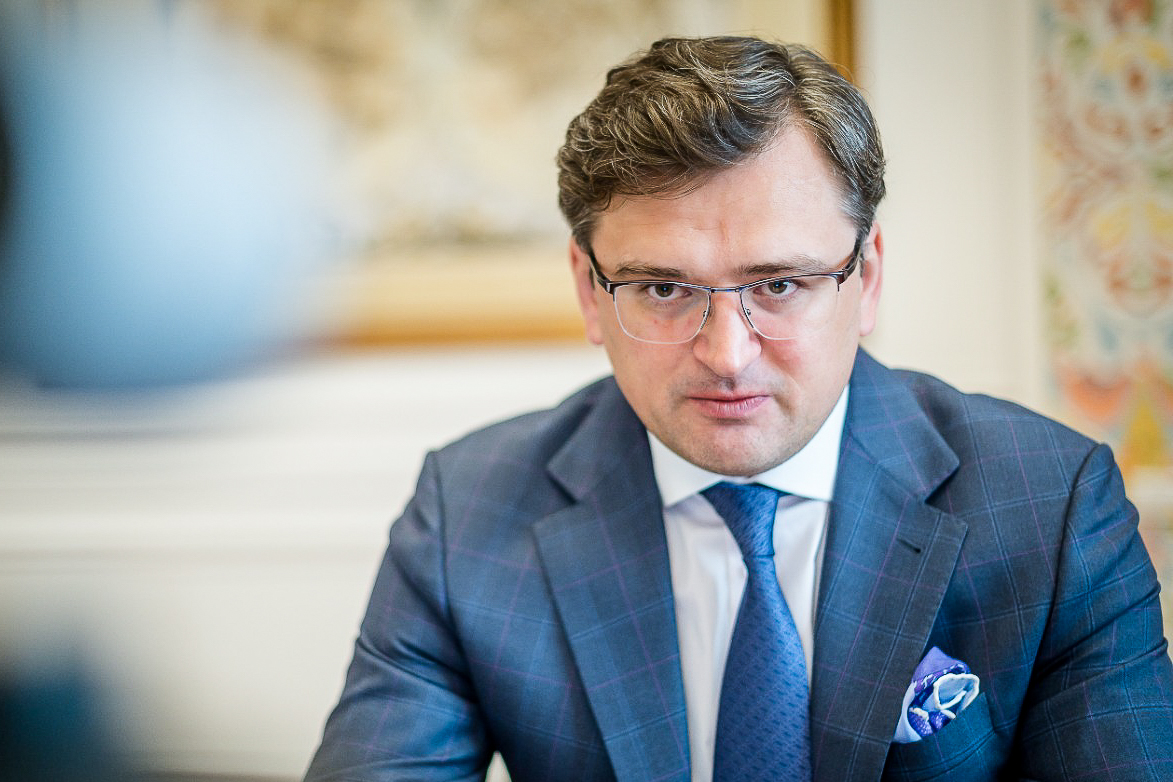Foreign Minister Dmytro Kuleba held a briefing for journalists from foreign media outlets on Feb. 2, to address recent developments in Russia's ongoing military build-up around Ukraine.
Kuleba said that an attack is not "imminent" and that there is room for diplomacy, despite conflicting messages from Ukraine's strategic partners. He also disagreed with the decision, first made by the U.S., to authorize non-essential embassy staff withdrawal from Kyiv, calling it "a premature decision and does not correspond to reality."
The U.S. State Department has authorized the departure of non-essential employees and the family members of diplomats stationed at the Kyiv embassy, on Jan. 23, citing potential Russian military escalation.
Canada, Australia and the U.K. have followed suit, angering authorities in Kyiv. President Volodymyr Zelensky called the decision "rushed."
The European Union and its member countries didn't enact the same measures, with EU foreign affairs chief Josep Borrell confirming that the EU is not “going to do the same thing, because we do not know any specific reasons.”
The Kyiv's dissatisfaction was heard in Washington.
White House Press Secretary Jen Psaki said that she will no longer describe a potential Russian invasion of Ukraine as "imminent," suggesting the word sent an unintended message.
"We stopped using it because I think it sent a message that we weren't intending to send, which was that we knew President (Vladimir) Putin had made a decision," Psaki said on Feb. 2.
Russia has amassed over 120,000 troops, a wide range of military equipment and aircraft concentrated along Ukraine's border with Russia and the Kremlin's ally Belarus.
New satellite imagery, collected and analyzed by Maxar, showed ongoing steady Russian military deployment near Ukraine's border. In an accompanying note, Maxar said the deployments "reflect an increased level of activity and readiness."
In addition to military pressure, Kuleba reminded that Russia wants to destabilize Ukraine through cyberattacks and misinformation.
Kuleba asked the West to be proactive when dealing with Russia, as the Kremlin made no effort to de-escalate or pursue diplomacy. Kuleba echoed Zelensky's earlier remarks that sanctions against the Kremlin should come as a preemptive measure.
“Let’s impose sanctions first, and then whether they stop Russia – we will see,” Zelensky said after he met with U.K. Prime Minister Boris Johnson, who visited Kyiv on Feb. 1.
Kuleba continued that It is Russia that delayed, stopped or derailed meetings in the past, not Ukraine. Regardless, Ukraine wishes to resolve all issues diplomatically and is willing to meet Russia under one of the many proposed formats.
Kuleba asked Ukraine's allies to provide specific sanction lists and to continue providing Ukraine with military aid.to clearly define what consequences Russia would face should further invade Ukraine. Russia must pay " a very high price," in the case of an invasion, said the foreign minister.













